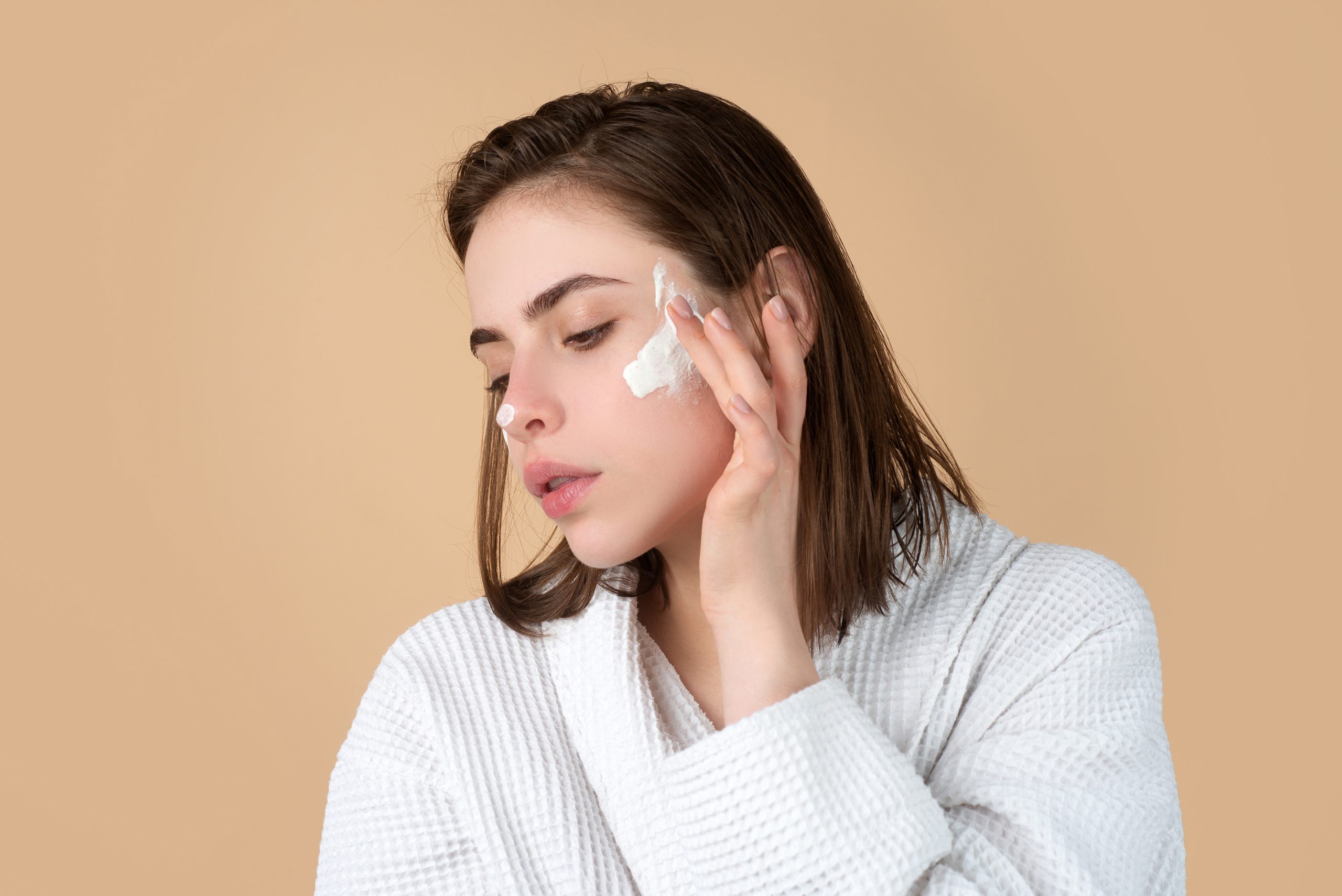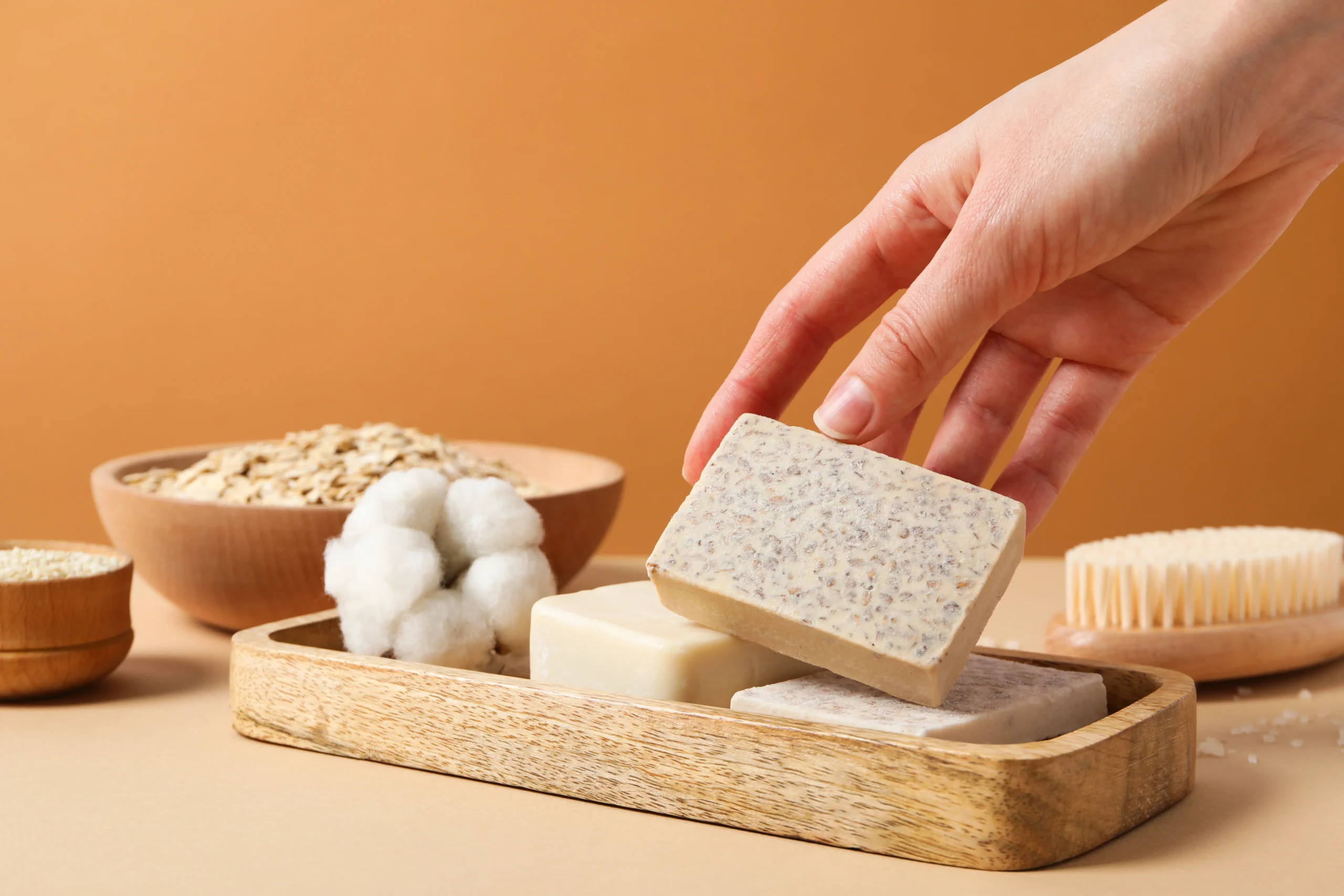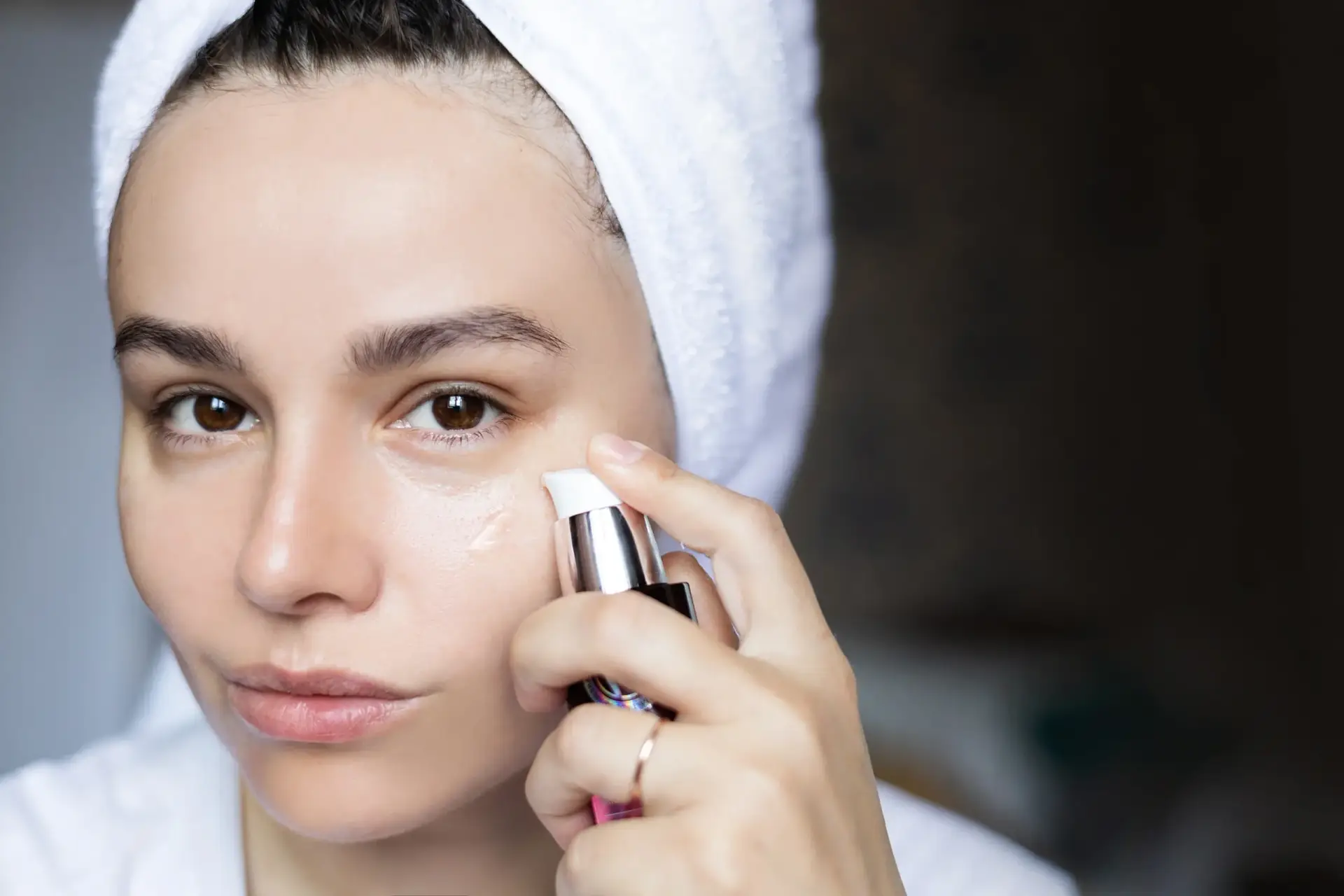How do I know if I have sensitive skin? Millions of people ask this question when they suddenly experience redness, irritation, or discomfort on their skin. Sensitive skin can manifest itself in many ways due to seasonal changes, harsh skincare products, or some physical condition. Suppose you’ve felt like your skin is reacting to something that doesn’t cause any problems for others. In that case, you’re probably a sufferer of sensitive skin.
The good news is you’re not alone. There are ways to easily identify whether you have sensitive skin and how to care for it properly.
Suppose your cheeks turn red when exposed to the wind. If you start to feel irritated after applying a new moisturizer or develop a rash after using scented products, these could be early signs of sensitive skin. This article will discuss identifying these symptoms, what factors trigger sensitive skin, and what methods to adopt to keep skin healthy and calm.
Let’s find out what signals your skin is trying to give you.
Understanding Sensitive Skin
What Is How Do I Know If I Have Sensitive Skin?
Sensitive skin is prone to inflammation, irritation, or reactions. While it is not a specific disease, it can sometimes be a symptom of an underlying skin condition such as eczema, rosacea, or allergic contact dermatitis. This skin has very high nerve sensitivity, resulting in a strong reaction even to mild stimuli.
Common Causes of Sensitive Skin
Both internal and external factors can cause sensitive skin. Internally, genetics, hormonal fluctuations, or an abnormal immune system response can cause sensitive skin.
External triggers, such as air pollution, weather changes, or chemical-laden skincare and cosmetic products, are primary triggers for sensitive skin.
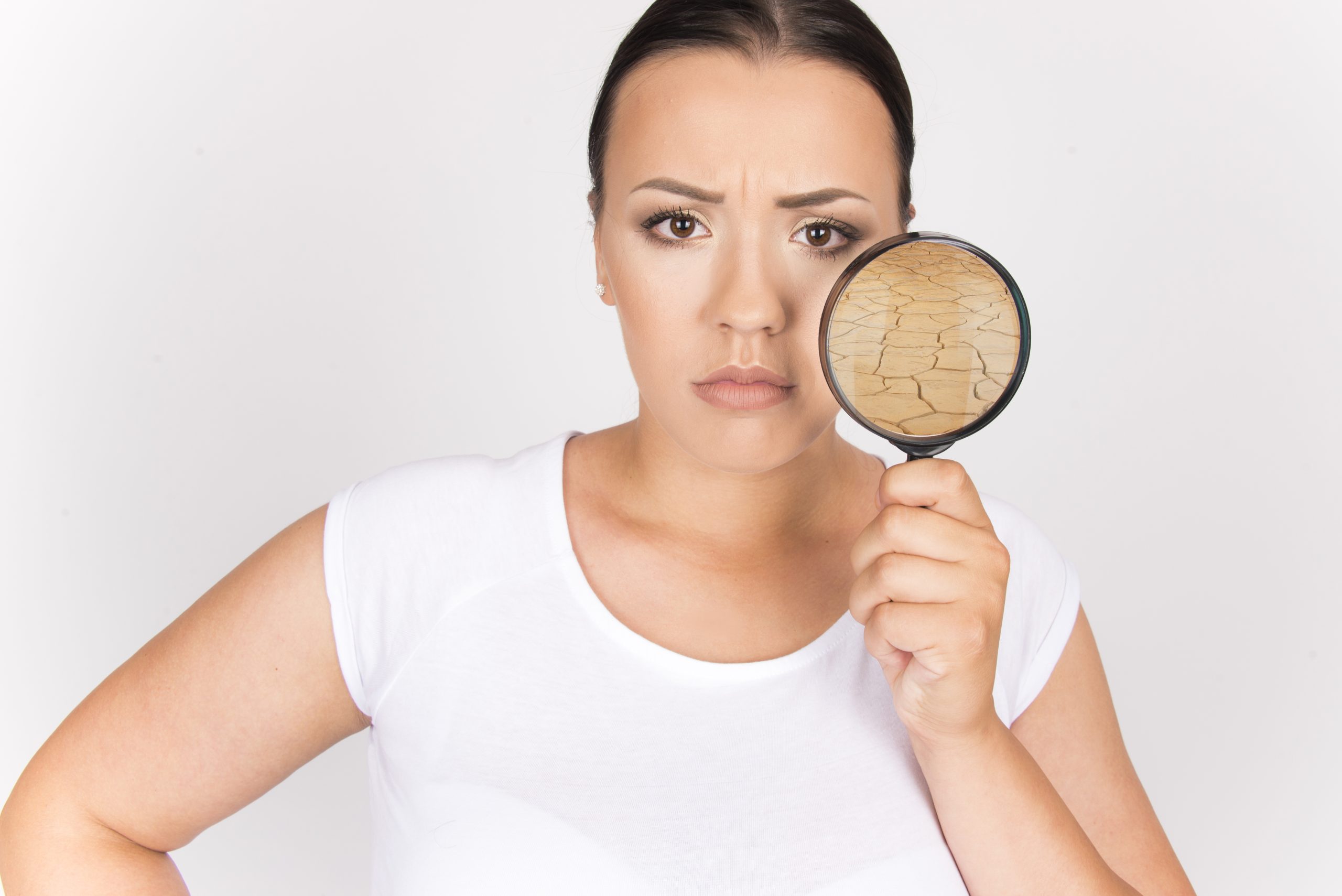
10 Powerful Signs of Sensitive Skin
Sensitive skin often reveals its problems through subtle or obvious symptoms. Understanding these signs can help you tailor your skincare routine to prevent further damage or discomfort. If you’ve ever wondered, “Do I have sensitive skin?” these 10 powerful signs will help clear your doubts.
The first and most obvious sign is skin redness. This can manifest as redness of the cheeks, pallor, spots around the nose, or a pinkish tinge to the entire face and throat. Redness can be permanent or appear suddenly due to touch, heat, skincare products, or emotion.
Another strong signal is a burning or stinging sensation, especially after using a new product. Retinol, glycolic acid, fragrances, and preservatives in everyday lotions and cleansers usually cause this discomfort.
Dryness and peeling are other common symptoms of sensitive skin. If your skin is flaky, tight, or peeling for no apparent reason, it could be an adverse reaction to environmental conditions or a product you’re using. These symptoms signal a weakened skin barrier, which needs urgent care and hydration.
Itching and burning sensations, often for unknown reasons, are also a significant feature of sensitive skin. Suppose you find yourself repeatedly scratching or rubbing a specific area. In that case, your skin may be reacting to an allergen, the texture of a fabric, or changes in the weather.
Many people with sensitive skin experience breakouts when using new products, even if those products are labeled “gentle” or “natural.” Unlike regular breakouts, these are usually small red bumps or rashes that itch or burn and subside when the product is discontinued.
Skin that feels tight after washing your face is also a sign. Suppose your skin feels uncomfortable or tight after washing. In that case, it’s likely that your cleanser is too harsh for your skin or that your skin is overly sensitive.
You may notice small blood vessels that appear red or purple around your cheeks and nose. These blood vessels may be more visible if your skin is regularly inflamed or sensitive to temperature changes.
People with sensitive skin are often more sensitive to changes in the weather. Cold weather can dry out the skin, while humidity can clog pores, causing the skin to react more strongly to the changing seasons.
Another sign is increased sensitivity to sunlight. If even sunlight causes redness, spots, or itching, your skin is more reactive than usual. In some cases, sensitive skin is more prone to sunburn than other skin types.
Finally, if your skin reacts badly to products containing fragrance or alcohol, that’s also a big red flag. These ingredients are major irritants for sensitive skin and can quickly cause inflammation, rashes, or burning.
If you recognize several of these signs, you likely have sensitive skin. The key to managing sensitive skin is gentle care, a simple skincare routine, and avoiding common irritants.

Common Triggers of Sensitive Skin
Understanding the common triggers of sensitive skin is essential to protect yourself from inflammation and discomfort and keep your skin calm and balanced. Sensitive skin is much more reactive to environmental, chemical, and emotional changes than other skin types. Knowing what causes your skin to become uncomfortable can help you create a routine and lifestyle to reduce this sensitivity and strengthen your skin’s natural barrier.
Environmental influences are the most common and challenging to control triggers for sensitive skin. Pollution, UV rays, wind, and extreme hot or cold temperatures can cause skin inflammation. For example, frigid air in the winter can suck moisture from the skin, causing dryness and irritation. Similarly, heat and humidity in summer can cause redness, sweating, and clogged pores. Urban air pollution weakens the skin’s protective layer, allowing allergens and irritants to penetrate and cause inflammation easily.
Another critical factor is harsh skincare products. Many conventional cleansers, toners, and exfoliators contain sulfates, alcohol, artificial fragrances, and strong acids. While these ingredients may be beneficial for some skin types, they can also be helpful for sensitive skin. They can disrupt the skin’s pH balance and strip away essential oils, damaging the skin. In particular, exfoliation must be done with great care; overuse of scrubs or chemical exfoliants can cause microcracks, inflammation, and increased sensitivity in the skin.
Stress and hormonal fluctuations are often overlooked, but equally important. When the body is under stress, cortisol is released, increasing oil production and skin inflammation. In the case of sensitive skin, this inflammatory condition can increase breakouts, redness, and itching. Hormonal changes during menstruation, pregnancy, or menopause increase skin reactivity, making the skin unexpectedly oily or dry.
Diet and internal health also play a role. Certain foods, especially spicy foods, alcohol, and caffeine, can cause skin reactions in some people. While food sensitivities vary from person to person, consuming a diet rich in antioxidants, omega-3 fatty acids, and plenty of water can help strengthen the skin barrier and reduce reactions.
Another lesser-known trigger is the misuse of skin care tools and accessories. Using unclean makeup brushes, facial rollers, or towels can spread bacteria to the skin, disrupting its balance. Similarly, overusing facial cleansing devices or applying too much pressure can damage and cause minor injuries to sensitive skin.
Finally, synthetic fabrics and detergents can cause skin irritation, redness, and rashes, especially in the neck, back, and chest areas. Clothes that are extremely hot or sweaty, and dyed or rough clothes, can irritate the skin. Similarly, laundry products that contain heavy fragrances or strong surfactants can leave residue on clothes and bed sheets, increasing sensitivity over time.
Identifying and avoiding these common triggers can reduce skin sensitivity and prevent inflammation. The key is to practice gentle care, live mindfully, and understand what your skin tolerates well and what it reacts to.
Diagnosis: How Do I Know If I Have Sensitive Skin?
How do I know if I have sensitive skin? It can be tricky because it’s not always obvious. Unlike certain medical conditions where there are clear tests, sensitive skin is primarily diagnosed based on how your skin feels and how it reacts to various triggers. But it’s important to understand whether you have sensitive skin or your symptoms are due to another underlying issue, so you can adequately care for your skin. If you ask yourself, “Do I have sensitive skin?” this section will help you recognize it, understand the difference, and take the right action.
The first step in diagnosing sensitive skin is regularly noticing patterns in your skin’s behavior. If your skin repeatedly becomes red, itchy, irritated, or tight after using a new product, being in the sun, or experiencing weather changes, that’s a strong indication. These reactions usually occur quickly, within minutes to hours after exposure to the trigger. Although these symptoms may not always be visible, they are consistent and recurring, especially when there is a specific environmental or product-related cause.
It’s also essential to differentiate sensitive skin from allergies or chronic skin conditions. For example, allergic contact dermatitis may look similar to sensitive skin but is caused by a specific allergen, such as nickel, latex, or a skincare ingredient. Similarly, symptoms of conditions like rosacea, eczema, or psoriasis, such as redness, peeling, or irritation, can be similar to those of sensitive skin. Still, they require a different approach to treatment. That’s why it’s essential to record your symptoms, such as what triggers them and how long they last, so you can better understand your skin’s actual behavior.
If unsure, the safest and most reliable way is to consult a dermatologist. A professional can examine the skin under control and determine if there is an underlying disease. They may also perform tests, such as patch tests, to see if an allergy or sensitivity causes your symptoms. In this test, potential allergens are applied to a small skin area and observed for any reaction over the next 48 to 72 hours.
You can do a patch test at home to test yourself. If you suspect a product is causing irritation or discomfort, apply a small amount to the back of your ear or the inside of your arm and wait 24 to 48 hours. Suppose redness, blistering, itching, or irritation occurs. In that case, avoiding using the product on your face or other sensitive areas is best.
Age and hormonal changes can also affect skin sensitivity. As we age, skin becomes drier and thinner, which increases sensitivity. Hormonal fluctuations during pregnancy or menopause affect the skin’s moisture and barrier, making the skin overly reactive.
In many cases, sensitive skin is a long-term condition that can be managed with proper care but is not entirely cured. Diagnosis is often a process of elimination, identifying triggers and responding over time. This is possible with self-awareness, observation, and, if necessary, medical advice.
Ultimately, diagnosing sensitive skin means listening carefully to your care routine. When you understand the causes and confirm that your skin is sensitive, you can protect and nourish it, reduce inflammation, and regain skin comfort and confidence.
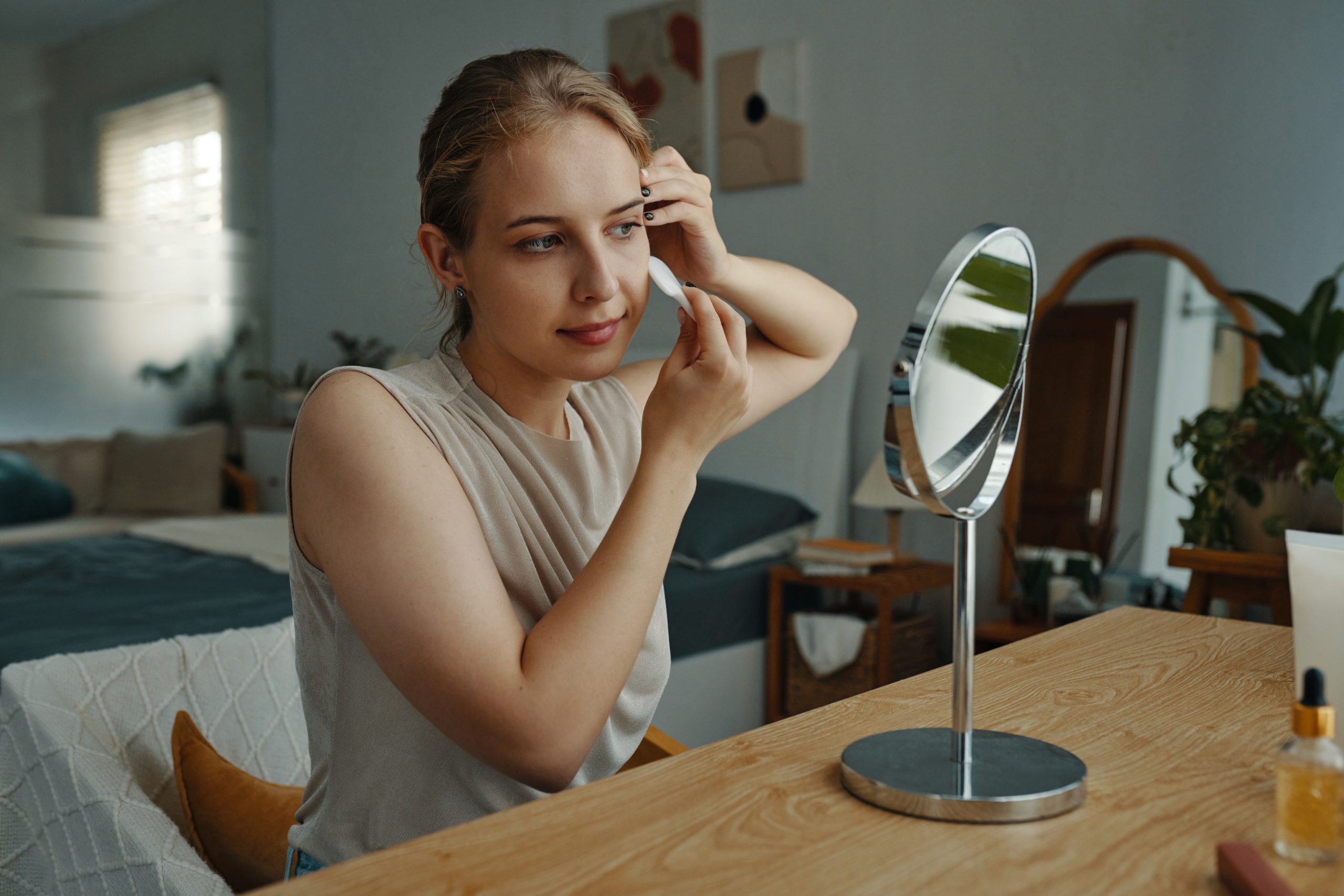
Skincare Routine for How Do I Know If I Have Sensitive Skin
Creating a skincare routine for how do I know if I have sensitive skin means being gentle, mindful, and consistent. Sensitive skin needs a routine that soothes, strengthens, and protects its natural barrier. Suppose your skin often reacts negatively to a product or environmental change. Creating a routine that hydrates, nourishes, and protects the skin while avoiding irritation and discomfort is essential.
The foundation of any effective routine is gentle cleansing. Many cleansers on the market contain sulfates or harsh surfactants, which strip the skin of its natural oils, leaving it feeling tight and uncomfortable. For sensitive skin, choose a mild, non-foaming cleanser that is fragrance-free, pH-balanced, and contains soothing ingredients like glycerin, aloe vera, or chamomile. Avoid using hot water when washing your face, as it irritates and dries your skin. Instead, wash your hands gently with warm water and gently pat dry with a soft towel; never rub.
Once your skin is clear, using a moisturizer is essential. Sensitive skin loses moisture quickly because its barrier is weak. So choose a moisturizer rich in ceramides, hyaluronic acid, colloidal oatmeal, or niacinamide, which hydrate the skin, reduce inflammation, and boost natural defenses. Using products labeled “non-comedogenic” and “hypoallergenic” reduces the risk of reactions.
Sun protection is critical but often overlooked. UV rays damage sensitive skin, causing redness, inflammation, and premature aging. That’s why using a broad-spectrum SPF 30 or higher sunscreen daily, even on cloudy days, is essential. Mineral sunscreens rich in zinc oxide or titanium dioxide are suitable for sensitive skin, as they sit on top of the skin to block UV rays and don’t cause irritation or burning like chemical sunscreens.
When it comes to treatments or serums, less is more. Avoid using too many active ingredients at once. If you want a specific treatment for redness, blemishes, or aging, look for products that contain azelaic acid, green tea extract, or allantoin. Monitor your skin’s reaction for a few days before using a new product.
Knowing which ingredients to avoid is at least as important as knowing which ones to keep. Fragrances (natural or artificial), alcohol, essential oils, menthol, and strong exfoliants like glycolic acid or salicylic acid can cause discomfort to sensitive skin. Even popular “natural” ingredients like tea tree oil or citrus extracts can sometimes be too harsh. Always read the ingredient list carefully and choose a brand specifically formulated for sensitive skin.
Exfoliation is generally best limited to once every 7 10 days, and only products that are gentle and gentle exfoliants, such as lactic acid or enzyme-based, should be used. Overexfoliation thins the skin barrier and increases sensitivity, so use a soothing moisturizer after exfoliation.
Focus on repair and restoration in your nighttime routine. After cleansing and moisturizing, you can use a barrier-repair balm or hydrating sleeping mask made for sensitive skin. This will lock in moisture overnight and strengthen your skin while you rest.
If you wear makeup, use products labeled “for reactive skin,” “non-comedogenic,” and “fragrance-free.” Remove makeup thoroughly at night with a gentle cleansing balm or micellar water.
How do I know if I have sensitive skin? A routine for delicate skin isn’t about jumping into a product rut but using the right products consistently. The goal is to create a peaceful environment where your skin can thrive. Once you find a routine that works, try to stick to it. Introducing new products too often can confuse your skin and cause problems.
Lifestyle Tips for Managing Sensitive Skin
Managing delicate skin effectively is about more than just choosing the right skincare products. Your daily habits, environmental influences, and overall health also play a significant role in your skin’s behavior. Adopting a mindful lifestyle can reduce inflammation, strengthen the skin barrier, and maintain calm and healthy skin over time. Sensitive skin thrives on consistency, so adding supportive habits to your routine can make a big difference.
One of the most influential aspects of lifestyle is your diet and hydration. What you eat directly affects the health of your skin. A diet rich in antioxidants, omega-3 fatty acids, and vitamins A, C, and E strengthens the skin’s defenses. Vegetables, berries, nuts, seeds, and fatty fish like salmon increase skin elasticity and reduce inflammation. On the other hand, processed foods, spicy foods, alcohol, and excess caffeine can increase redness and irritation. Drinking water is equally essential; drinking plenty of water throughout the day keeps skin plump, soft, and resistant to external irritants.
Another critical but often overlooked factor is stress management. Stress doesn’t just affect the mind; it increases skin inflammation and oil production and worsens existing sensitivity. The stress hormone cortisol weakens the skin’s barrier and makes it more reactive. Relaxation techniques such as yoga, deep breathing, journaling, or mindful meditation can help restore mental balance and improve skin condition.
Sleep also plays a vital role in skin repair and regeneration. During rest, the body repairs damaged cells and strengthens the immune system. Ensure 7-9 hours of quality sleep daily. Consider using hypoallergenic pillowcases like silk or satin, which are gentler on reactive skin than cotton or rough fabrics.
Ensure your bedding is clean and washed with unscented, gentle detergents to avoid exposing your skin to uncomfortable chemicals while sleeping. Choose loose, breathable, and natural fabrics like cotton or bamboo. Similarly, use a gentle laundry detergent without dyes or artificial fragrances, as chemical residue can irritate the skin throughout the day.
Regarding the environment, consider how seasonal changes, pollution, and indoor conditions affect your skin. In dry or cold weather, use a humidifier to increase humidity and prevent skin from becoming tight or flaky. To avoid breakouts, keep your skin clean and sweat-free in hot, humid weather. If you’re in a city with high pollution levels, wash your face thoroughly after going outside and use an antioxidant like a vitamin C serum (if your skin tolerates it) to help prevent environmental damage.
Finally, choose hypoallergenic personal care products for everything that comes into contact with your skin, not just face shampoo, body wash, deodorant, and even toothpaste. Many overlook that these items can irritate or cause allergies, especially when they contain fragrances, sulfates, or preservatives.
Consistency and awareness are key. Managing sensitive skin means taking a mindful, conscious approach to your entire body, from your plate to your pillow. With a few smart lifestyle changes, you can significantly reduce the incidence and severity of sensitivity, and your skin will be calm, balanced, and healthy every day.
Discover More Articles On Makeup And Beauty Here

Final Thoughts: About How Do I Know If I Have Sensitive Skin
The answer to the question, “How do I know if my skin is sensitive?” isn’t just about recognizing some sign of discomfort; it’s about understanding how your skin reacts to its environment. Delicate skin gives off a variety of signals: redness after cleansing, irritation when using new products, difficulty staying hydrated with moisturizer, or itching or irritation for no apparent reason. You can discover patterns in your skin’s reaction by noticing these recurring symptoms and evaluating your environment, skincare routine, and lifestyle.
Reactive skin is not a flaw; it’s a unique trait that demands special care and attention. Knowing the symptoms, triggers, and best practices for managing sensitivity can help you take control of your skin’s health. While it’s not always possible to make sensitive skin completely “healthy,” it can be soothed, protected, and strengthened with the right approach. Gentle products, a consistent routine, and a calm lifestyle can significantly affect your skin’s appearance and feel.
Remember, your skin is your body’s first line of defense. When it reacts, it’s usually trying to give you an important message. It could be a sign of a lack of hydration, a warning against an ingredient, or a response to stress and hormones. These signals should not be ignored. When in doubt, it is wise to consult a dermatologist, who can provide personalized and clear guidance for your skin.
Ultimately, managing sensitive skin is a journey of awareness and patience. By listening to your skin and responding with kindness and consistency, you can create a routine that supports your skin’s health in the long run. The more informed and mindful you are, the more confident you will take care of your skin.

